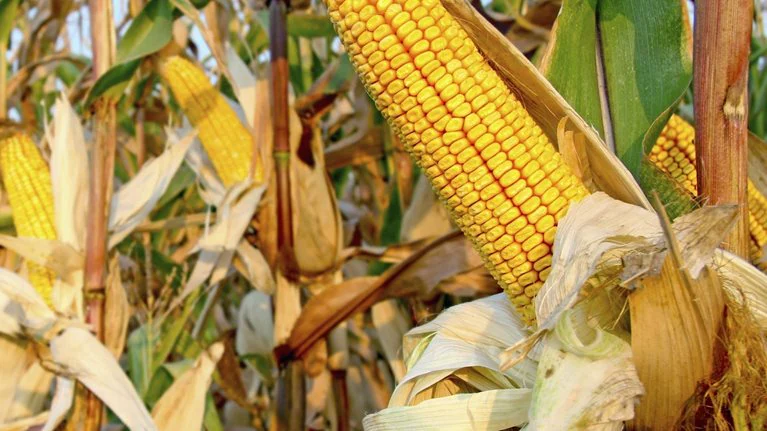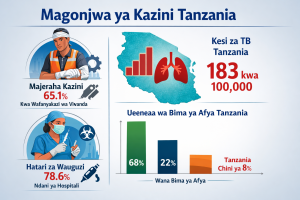
Feeding Africa’s Hungry and Exporting Surplus in The Ways of Tanzania’s Agricultural Exploits.
State of Food Security in the Continent
Africa plans to become a global food exporter by 2050 which is a challenging undertaking considering that the continent imports about $50 Billion worth of agricultural products per year. This goal is expected to be achieved through the AfCFTA agreement where intra-African agricultural trade is projected to increase by 574% after the elimination of Import tariffs by 2030. By the year 2035, the total exports would increase by nearly 29 percent. As per the AfCFTA aspirations, Africa’s agriculture exports will experience gains of 49 percent for intra-African trade and 10 percent for the extra-Africa trade.
Many African countries have continued to import agricultural food crops even after the ratification of AfCFTA. Over the years, Sub-Saharan Africa has remained a net importer of food and agricultural products despite having 60 percent of the world’s uncultivated and unutilized arable land. In 2023 during the Russia-Africa Summit, President Putin offered, among other things, a shipment of 50,000 tons of grain aid to Burkina Faso, Zimbabwe, Mali, Somalia, Eritrea, and the Central African Republic.
One part of Africa
Somalia is experiencing one of the world’s most challenging food crises that has lasted for over three decades. Climate change, conflict, and global politics have dramatically increased food insecurity in the country. The Ukraine war has worsened the food crisis in the country, as more than 90 percent of Somalia’s grain was imported from Russia and Ukraine. In Ethiopia, one in six of the 120 million population needs food aid because of drought, conflict, and rising inflation. Just in February 2024, Ethiopia’s ombudsman confirmed the death of at least 351 people in Tigray and 21 in the Amhara region caused by starvation. In neighboring country Eritrea, two-thirds of the total population of 4.5 million are desperately in need of food, according to the government figures.
Other Parts of Africa
“Notably in the case of rice, Tanzania surplus production caters to the need of many other countries, reducing reliance not just within the AfCFTA, but also SADC and COMESA on imports from outside the region”
Not far from these food-insecure countries is Tanzania, a country praised for its agricultural mechanization and modernization approaches. Statistics showed that Tanzania produced food crops to the surplus, as it produced 20.4 million tonnes of food crops in 2022/23 against the estimated demand of 16.39 million tonnes in 2023/24.
Tanzania exported an average of 136,377.97 rice tonnes to Uganda, Rwanda (37,759.57), Burundi (4,829.27), Congo DRC (4,796.33), and Zambia (404.00), a common food crop among SADC community. From 2020-2023, Kenya imported an average of 83,087 tonnes of Maize from Tanzania, which is equivalent to 70 percent of the total maize exported from Tanzania maize during that period.
Global Food Exporter. Possible?
These statistics show that African countries produce less food than the overall demand. More than 12 countries within Sub-Saharan Africa depend on Tanzania to feed its people with the exclusion of the most food-in-need countries of Ethiopia, Djibouti, Eritrea, South Sudan, and Somalia. Despite importing more food from Tanzania than any other country, it is estimated that around 4.4 million people living in arid and semi-arid areas in Kenya still face high levels of Acute Food Insecurity. With these facts, it may be concluded that Africa should first focus on solving its food sustainability challenges before planning on exportation.
What should be done?
African nations must emphasize the implementation of AfCFTA to provide access to continental markets and enable farmers to sell a greater diversity of products, improve their income, and access a wider variety of nutritious food. Under the AfCFTA framework, food supply chain digitalization, such as traceability systems for geotagging in tracking agricultural commodities and emphasizing the use of Integrated Digital Trade Platforms should be considered. These capabilities can be useful for perishable agricultural commodities.
Africa should turn back to the Maputo Declaration, an agricultural transformation framework that was adopted as the resolution for the country to commit its 10 percent annual public budget to agriculture and rural development. For instance, in 2020, 17 years after its ratification, only four countries (Lesotho, Malawi, Ethiopia, and Benin) had allocated 10 percent of annual public expenditures to agriculture. The average African government should adopt and implement agricultural policies that considerably reduce the vulnerability of farmers and processors due to their structural dependence on inputs.
Africa should invest more in technology as transforming African food systems will require that smallholders and other value chain actors have access to technologies that go beyond productivity growth and include improved nutrition, sustainability, and livelihoods. There is also a need to invest and provide subsidies in seeds, fertilizers, and pesticides to reduce the burden on the small-scale farmers who are the main food producers.
Similarly, Empowering women and youth, including through greater access to and control over land and productive resources, is an essential step towards closing the gender gap in agriculture. This can enhance the commitment of critical ignored resources in agriculture leading to considerable gains in productivity and production.
These are the writer’s own opinions and do not necessarily reflect the viewpoints of Liberty Sparks. Do you want to publish in this space? Contact our editors at [email protected] for further clarification.



